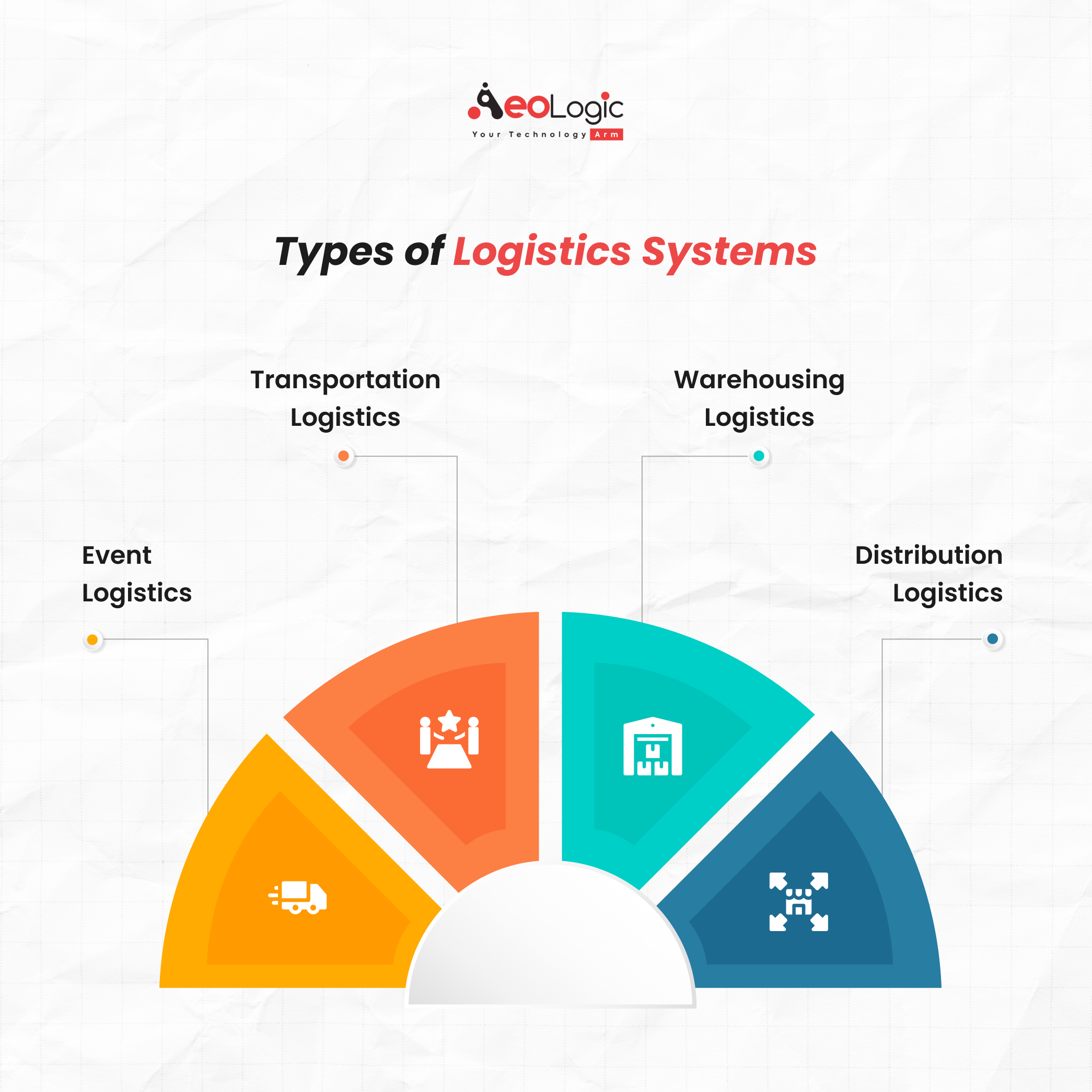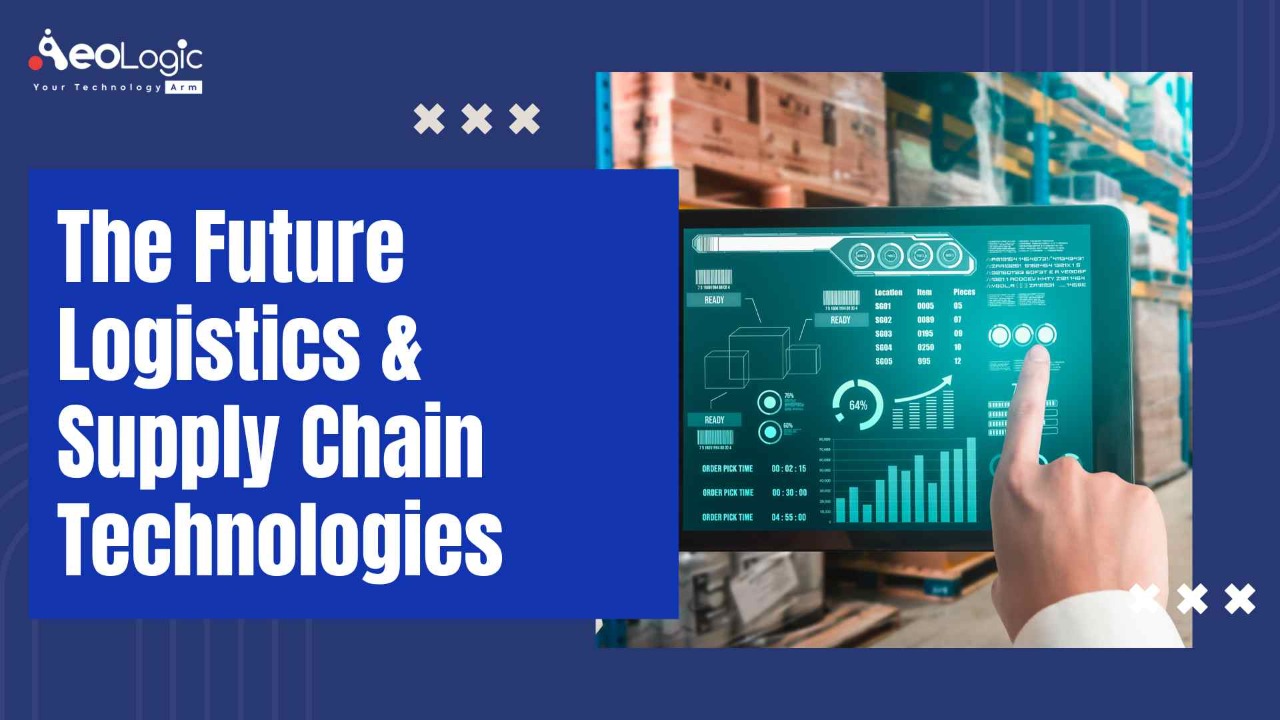Logistics are a major part of the supply chain and the future is going to see even more advanced technologies used to automate our supply chains. In this article, I’ll be discussing the future logistics & supply chain technologies. I will also discuss, future trends in logistics and supply chain technologies.
The future is here and companies are going green. From supply chain management to demand planning, logistics technology is evolving with the times and creating new tools for businesses of all sizes. With digital technologies and sophisticated analytics, companies can save time and money by eliminating inefficiencies caused by slow inventory management and inefficient shipping processes.
Logistics and supply chain management has a direct impact on the process and efficiency of delivering products to their customer. Hence, with the increasing demands of providing convenience to customers, retailers are constantly looking for new and innovative technologies that will help them acquire customer satisfaction.
Let’s begin!
Remodeling your raw technical data towards clear business information.
What is Logistics?

Logistics is the art and science of managing the flow of resources between the point of origin and the point of consumption in order to meet the needs of customers or clients. The term logistics comes from the Greek word logistics, meaning “reasoned” or “calculated”.
Logistics includes planning, implementing, and controlling processes for the efficient and effective movement and storage of goods, including materials, equipment, and people. It is a critical part of supply chain management.
The goal of logistics is to meet the needs of customers or clients while minimizing the cost of transportation and storage. In other words, logistics is all about getting things where they need to be when they need to be there.
There are many different types of logistics systems, but all share the same basic goal: to get things from point A to point B in the most efficient way possible. Some common examples include:
- Transportation Logistics: Planning and coordinating the movement of goods by land, sea, or air
- Warehousing Logistics: Storing and managing inventory in a warehouse
- Distribution Logistics: Delivering goods to retailers or other end users
- Event Logistics: Planning and more.
Also Read: The Future of IoT Technology in Convenience Stores
Logistics Market Overview
The Logistics & Supply Chain Technologies market is projected to reach $22.4 billion by 2022, driven by the increasing demand for efficient transportation and delivery services.
The rapid growth of the logistics industry is largely due to the rise of e-commerce, which has helped companies reduce costs and increase efficiency. These innovations have also resulted in an increase in the need for skilled personnel who can support these processes at all levels from planning to execution.
The global logistics industry is growing at a rate of 3.7% each year. There are many reasons why this growth is expected to continue:
- The integration of technology into daily life.
- The development of new technologies and improved efficiency in transport. systems
- Growing consumer demand for convenience.
- Growing competition from online retailers.

Following Factors should Drive the Logistics Market
The market for logistics is expected to be driven by the following factors:
- The need for increased supply chain efficiency and flexibility.
- The increasing emphasis on environmental sustainability in supply chains.
- The growing importance of supply chain management tools and software, including robotics, IoT devices, and machine learning algorithms.
- The increasing demand for consumer goods, especially in emerging markets.
- The increasing growth and size of e-commerce markets.
- The need for faster delivery times in a variety of sectors, including food and beverage, retail, apparel and footwear.
- The increasing complexity of supply chains and the need for greater transparency.
- The rise of new technologies, including blockchain, that can help improve the efficiency of logistics processes.
- Growing demand for customized products and services in the global marketplace.
- The increasing use of technology in enabling real-time visibility into the supply chain.
- The growing demand for logistics services from e-commerce companies.
Boost your business plans with customized applications.
Why Is It Important To Our Future?
Logistics is the process of organizing and managing the transportation and storage of goods. It is a critical part of the supply chain, and it plays a vital role in our economy.
The future of logistics is very exciting. With technological advances, we are able to move goods more quickly and efficiently than ever before. We are also able to track goods more closely so that we can keep better tabs on inventory and avoid issues like lost or damaged merchandise.
This is all good news for businesses, as it means they can get their products to market faster and with less hassle. It’s also good news for consumers, as it means we can get the items we want and need more quickly and without as much frustration.
In short, the future of logistics looks very bright. With continued innovation, we can only expect even more amazing things from this important field in the years to come.
Also Read: Importance of Digital Asset Management in the Retail Industry
Future Trends in Logistics and Supply Chain Technologies
In recent years, the logistics sector has seen a lot of innovation. The use of robotics and artificial intelligence to improve efficiency has increased significantly in recent years, allowing companies to work more efficiently and effectively. The use of these technologies has also allowed businesses to lower costs while increasing productivity. The future of the logistics sector looks promising, as we can expect to see more innovation in this area in the coming years.
The future of logistics and supply chain technologies is bright and it’s only going to get brighter. Here are some of the biggest trends in logistics and supply chain technology that we can expect to see in the next few years:
- AI-powered drones for more efficient deliveries.
- Big data for improved customer service.
- The rise of automated warehouses, which will lead to fewer jobs for humans.
- Blockchain technology that will make digital interactions more secure and streamlined.
- Robots and artificial intelligence (AI) becoming a bigger part of our lives.
- The Internet of Things (IoT) becoming even more ubiquitous.
- Augmented reality (AR) and virtual reality (VR) being used for training purposes.
- Robots that can handle dangerous tasks.
- More automation in logistics.
- New ways to save money.
Existing Challenges in the Logistics Industry and How Some of them Might Be Solved
There are a number of challenges facing the logistics industry today. Here are some of the most pressing issues and how they might be solved:
Capacity Constraints
A lack of capacity is one of the biggest challenges facing the logistics industry today. This is particularly true in the trucking sector, where there is a shortage of drivers and a growing demand for freight services. One way to solve this problem is to invest in automation and robotics, which can help to reduce the need for human labor.
Congestion
Congestion is a major problem for logistics companies, as it can lead to delays and increased costs. One way to solve this issue is to invest in alternative modes of transport, such as rail or waterways.
Sustainability
Sustainability is an increasingly important issue for businesses of all kinds, including those in the logistics industry. There are a number of ways to make logistics operations more sustainable, such as investing in green technologies or using recycled materials.
Security
Security is a major concern for logistics companies, as they often deal with high-value or sensitive items. There are a number of ways to improve security, such as investing in tracking technologies.
Also Read: 10 Ways to Use Artificial Intelligence to Improve Business Processes
Conclusion
Looking to the future, it’s clear that logistics will continue to play a vital role in our lives. With advances in technology, we can expect even more efficiency and accuracy in the way goods are transported around the world. So, this is good news for businesses and consumers alike, as it means we can expect even better service and faster delivery times. Whether you’re running a business or simply want your packages to arrive on time, keeping up with the latest developments in logistics is a good idea.
As individuals in our industry, it is up to us to grab the opportunity that supply chain management has in store for us in the future.
Are you looking to implement automation into your business? If your answer is yes, then kindly contact Aeologic Technologies.
Thank you!









